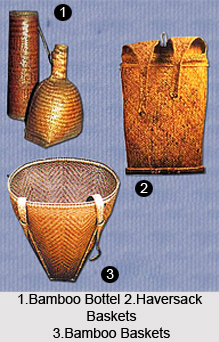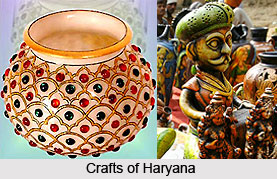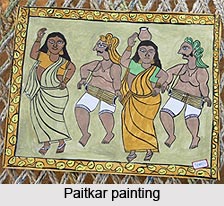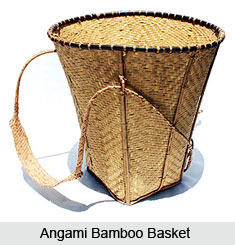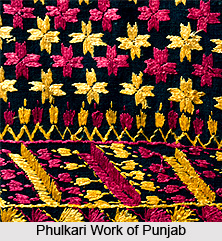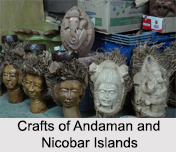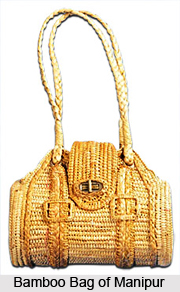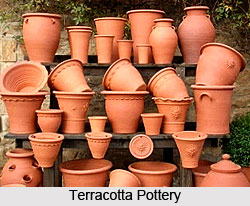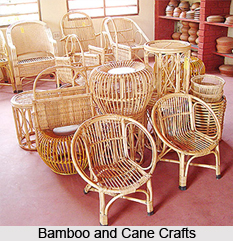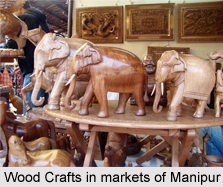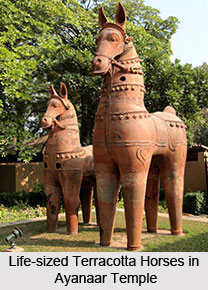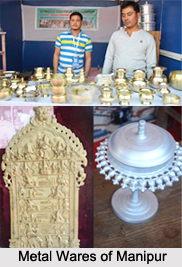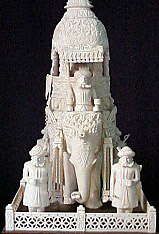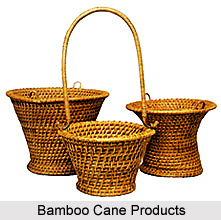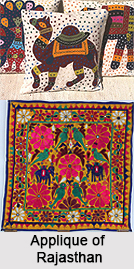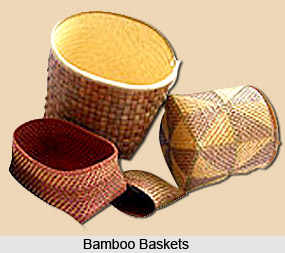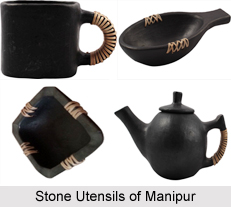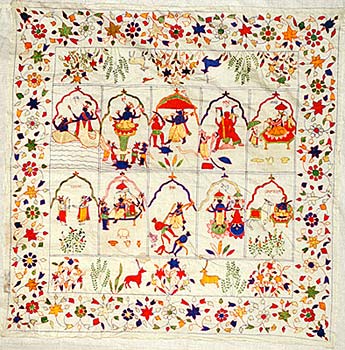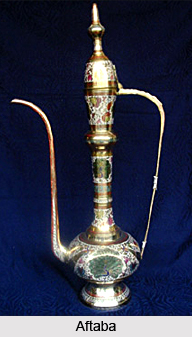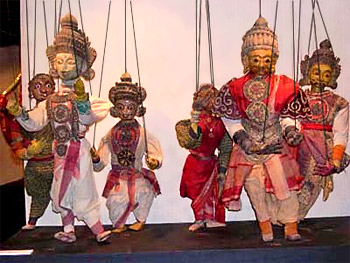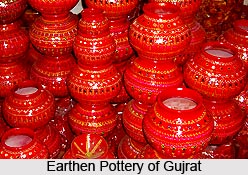 Gujarat is the storehouse of crafts, which has been deftly passed on from generation to generation. These crafts have a hereditary basis and are replete with vibrancy. The fascinating textiles, elaborately carved wooden and stone jharokhas, bandhini and intricately carved silver jewellery are some of the famous crafts of the state.
Gujarat is the storehouse of crafts, which has been deftly passed on from generation to generation. These crafts have a hereditary basis and are replete with vibrancy. The fascinating textiles, elaborately carved wooden and stone jharokhas, bandhini and intricately carved silver jewellery are some of the famous crafts of the state.
History of Crafts of Gujarat
Excavations at the Harappan sites in Gujarat such as Lothal, Rangpur, and Rozdi have revealed ancient handicraft articles of Gujarat like pottery, stone craft, metal craft, and many more. The state has a rich tradition of embroidery, leather work, bandhani and hand-block printing. Gujarat is also famous for its unique Kutch embroidery. Jewellery art of Gujarat also traces its origin to the ancient rulers of the region.
Embroidery craft
Embroidery reigns in all aspects of Gujarati life and has now developed in to a full-fledged industry. The embroidery of the Saurastra and Kutch regions is lavish piece of art. One of the oldest and best known is the kathi, which was introduced by the Kathi nomads. Heer is another variety, which is so named because of the local flossy silk heer that is used to make it. It has long stitches and stamped designs, which covers the entire surface. Abhala is the mirror embroidery which is widely used for all Indian embroideries. In this the designs are made using small round shaped mirrors, which are fixed to the material with the help of buttonhole stitch.
In Saurastra a special style of embroidery called mahajan is famous. Mahajan has a special design called kajuri in which a satin shine and fine effects are attained by special manipulation of the satin and herring bone stitches by interchanging vibrant red with shades of violet. Aribharat or hook embroidery, mochibarat, rabari, banni and soof embroidery and applique work are among the many beautiful embroideries of this state. Embroidery is done on lehngas, cholis and dupattas, men`s kurtas, churidhars, children`s clothes and wall hangings called chaklas.
Bandhini craft
Bandhani or the craft of tie and dye of fabrics is an exclusive art form of Gujarat. It can be described as the mirror of Gujarat`s perennial vibrancy and flamboyancy. Jamnagar, Anjar and Bhuj are famous centers of this form of art. The bandhanis are available in numerous designs of which the two important ones are bar bag or bavan bag, which means twelve gardens or fifty-two gardens. In Jamnagar bandhini is done on special type of glazed silk for blouses, vests and lampshades. Other items in bandhani include household linen, ties and scarves, stolls etc.
Textile craft
Any form of textiles is Gujarat`s forte and especially silk fabrics. Gujarat has developed its own style of kinkabs (brochades) woven with extra weft patterns. Umpteen designs like tara mendal, animals, fruits, stylized dance figures, peacocks, women waving fans are used. Rudrol in Mehsana district, Jamnagar and Dokla are famous for this craft. The Tanchoi fabric is another interesting fabric of Gujarat. The design is basically floral with occasional figures of birds, paired cocks etc. The pallu has more heavy work with peacocks, baskets, or bunches of flowers or hunting scenes. Patolas are one of the finest hand woven textiles found in Patan in Mehsana district.
These patolas are mainly weeding sarees with dark green, white or yellow set against a ruby red background and leaf and flower patterns while the pallu has images of dancing girls and parrots or swans. Gujarat also has a tradition of mashru, a fabric that tells the tale of its creation. Mashru is woven with a combination of silk and cotton. The cotton forms the lower layer and woven by Muslim men. Although it is found all over India, Gujarati mashru has bold patterns and colours which sets its own style.
Crochet craft
Crochet lace is another form of craft in the state and Jamnagar is the oldest center of crochet lace work. The designs are primarily based on print motifs like boot, floral, nosegay, almond and date. The colour palette of crochet is dominated by black and brown with white and has an artistic appeal. The women make decorative as well as utility crochet lace items.
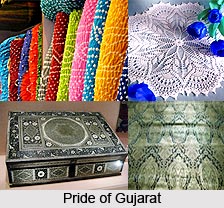 Clay craft
Clay craft
Gujarat is also renowned for its pottery especially those coming from Kutch and Saurastra. Earthenwares of different shapes and sizes are produced. Banaskantha produces water pots that are very artistic. A small village in Kutch Vidi has abundant white clay, which provides the clay required for manufacturing soft white pottery. In Saurastra one can find a particular type of clay called `gopichandan` because it is similar to chandan (sandalwood). A finished article of gopichandan has a beautiful gloss.
Wood craft
Gujarat also has a rich tradition in the field of wood crafts. A unique feature of the wood carvings of Gujarat is the large variations found in a single motif. The traditional wood carving items include nav khania and tran khania, cupboards; the paniara stands for water pots and the jhula. In the town of Pethapur of Mehsana district there are engraving of blocks for textile printing for which teakwood is mostly used.
Surat in Gujarat is famous for its marquetry called sadeli. It is a kind of a mosaic work on the panels using ebony, ivory, red wood, green bone, tin, etc. The designs seem to be originated in Persian because it has a floral touch. Bhavnagar in Saurastra is famous for making large teakwood chests called pataras that is spacious and durable. It is customary to gift a patara to a girl when she moves to her new home after marriage.
Crafts of Gujarat have survived the wave of modernism and have evolved a long way since its origin. Due to the majority of tribal population in the state, some of the crafts are indigenous to the tribes. The signature features of crafts of Gujarat with its rich embellishment and mesmerizing vibrancy has carved as niche in the national and international market.
